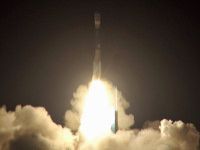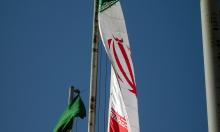Proton taken hostage by Kazakh authorities
The Kazakh authorities are delaying issuance of the authorization to launch "Proton" rocket from Baikonur. There is not much time left as the launch is scheduled for September 30. Pravda.ru interviewed experts who believe that this is a bargaining strategy. "Kazakhstan intends to obtain a better access to the money, and the Federal Space Agency of the Russian Federation is prepared to launch. We are talking about a very significant amount."

The media has already cited the opinion of the representative of the Russian Space Agency that by delaying the process of official authorization to launch "Proton" Kazakhstan is trying to put pressure on Russia. Earlier, head of the Ministry of Environment of the Republic of Kazakhstan demanded that the launch of "Proton" originally scheduled for September 15 be postponed until the completion of the decontamination works at Baikonur. In fact, the Minister had a good reason for this "environmental" statement. On July 2nd of this year, shortly after the launch, the previous "Proton" fell on the territory of the republic with all ensuing consequences. However, all the required cleaning, sanitizing and maintenance works have already been completed in full, and a respective act was drawn up, signed by both Russian and Kazakh parties.
For example, even head of Kyzylorda region of Kazakhstan Krymbek Kusherbayev stated back on September 20th that the work on Baikonur clean-up has been completed and there were no complaints. Yet, the Kazakh "environmental" ministry is in no hurry to recognize that the work to decontaminate the areas where the remains of the fallen "Proton" were located has been completed. It seems that the Kazakh environmentalists inevitably become hostage to some other, not environmental game.
After all, the Federal Space Agency has notified the government of Kazakhstan about the upcoming launch of "Proton" from the Baikonur Cosmodrome according to all legal rules and within the required time frame. The international agreements on the lease to Russia of Baikonur cosmodrome have been fully complied with. What is going on? It appears that this has to do not so much with the environment, but money.
For Russia the delay of "Proton" launch is extremely disadvantageous. There are commercial contracts with highly reputable customers interested in the speedy progress of space -related projects. According to the contract, the Russian side can expect a significant penalty for delays. Such precedents do exist.
In June of this year, an arbitration court ordered Khrunichev Center to pay state enterprise Satellite Communications 99 million rubles for the delay in the production of broadcasting satellite Express- MD2. The delaying of the launch by Kazakhstan is not quite blackmailing, but the commercial component of the benefit of the lessor of Baikonur can be traced in some way.
In fact, there is no other explanation of the events early this year other than a disguised commercial interest of Kazakhstan. At the time it suddenly turned out that Kazakhstan agreed to only 12 launches from Baikonur, though the plan for 2013 launches approved by both parties in advance listed much more that that.
Then, the Russian Foreign Ministry sent a special note to the Government of Kazakhstan. At first it seemed like it was not read, and after long diplomatic negotiations the issue was resolved, but certain anxiety remained. As it turns out now, the intuition did not lie. The situation with the delayed approvals of the current launch of "Proton" is an eloquent indicator.
Another indicator is the fact that the Kazakh party is quite negative about the construction of the Russian cosmodrome "East." Articles on the topic appear in the Kazakh press quite regularly. Of course, this cannot be called the government position, but the appearance of quite ambiguous articles in the media on this subject is- an indicator.
Cosmodrome "East" is the future Russian space center currently under construction in the Far East in Amur region near the village of Uglegorsk. The total area of the reserved territory of the cosmodrome is 1,035 square kilometers, which is comparable with the territory of Baikonur. Launching of satellites to the geostationary orbit from "East" will be more effective because of the geographical location of the new spaceport. Two launch pads for rockets "Soyuz- 2" of light and medium classes will be built at cosmodrome "East" by 2015. The launch complex for heavy rocket "Angara" will be built by 2018.
"East", in fact, will ensure guaranteed performance of international and commercial space programs, in contrast to Baikonur cosmodrome. The first launch of the carrier rocket is planned for late 2015, while the first launch of a manned spacecraft is scheduled for 2018. It turns out that this is a great alternative to Baikonur.
Russia has another operating cosmodrome, Plesetsk (1st State Test Cosmodrome) located 180 kilometers south of Arkhangelsk. The total area of Baikonur is 176,200 hectares. From the 1970s through the early 1990s Plesetsk Cosmodrome was the world leader in terms of the number of rocket launches into space (between 1957 and 1993 1,372 launches were made from here), while only 917 launches were made from Baikonur). However, due to the geographical position launches of manned satellites from Plesetsk are problematic.
Head of the Department of Central Asia and Kazakhstan of the Institute of CIS countries Andrei Grozin commented on the situation for Pravda.Ru.
Does Russia have to ask permission of Kazakhstan to launch spacecraft?
"Of course it does, because despite the fact that we are renting Baikonur, it is Kazakhstan's territory. In the Republic of Kazakhstan each launch is perceived as very painful. Now the national patriots are very excited about this and are trying to initiate some sort of a referendum on the closure of landfills to stop launching missiles using toxic heptyl fuel. I do not think something will come out of it, but the response is quite revealing."
What is the general attitude in the society, in the country?
"The attitude in the Kazakh society is still very unstable. There are still supporters of continuation of a full partnership with Russia in space exploration, and there are opponents. But the majority is undecided people without a pronounced position. The lack of public consensus in this regard allows the Kazakh authorities to use the current mindset of the Kazakhstan society and demand from the Russian Space Agency and Russia certain preferences."
So they are bargaining?
"It is clear that environmental issues are important for the country, but it is also clear that for the Kazakh authorities and officials in charge of the space industry it is much more important to get a variety of preferences. Late last year - early this year a conciliation commission to modernize the lease of Baikonur by Russia was created. By the end of this year it should be able to present a "road map." From the Russian side, if I am not mistaken, the commission is curated by Sergei Naryshkin, and from Kazakhstan - Deputy Prime Minister Kairat Kelimbetov. They need to get a document from the government and from the space agencies of their respective countries. The document should be approved by the end of the year."
What conditions are stipulated in this document?
"Starting next year, Russia and Kazakhstan have already agreed to move to the updated lease agreement with the new conditions that would provide Kazakhstan more rights to monitor the sites. Creation of a joint launch venture is possible, and the Kazakh party insists on it. Currently the Russian Space Agency is paying a fixed amount, something in the area of $115 million and funds the city of Baikonur and the cosmodrome. All these costs add up to the total amount of the lease."
What does Kazakhstan want?
"Kazakhstan is now ready to give up the lease money, but wants to get more access to the money that Russian Federal Space Agency receives from the launches. These are much more serious sums than $115 million. Kazakhstan wants to enter Baikonur not simply as a party that delivers a large piece of land for the launches by Russia, but also as one of the participants in this process. I think that heptyl accident with Proton is used by Kazakhstan to strengthen its position in the negotiations on the terms of the new updated contract."
Andrei Mikhailov
Subscribe to Pravda.Ru Telegram channel, Facebook, RSS!





